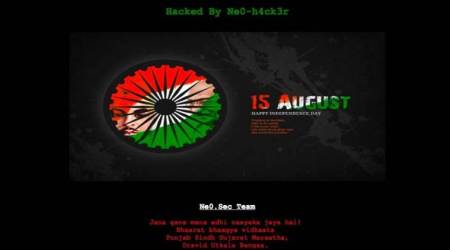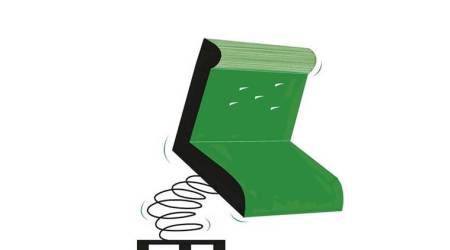 Why was Abu Bakar Haqqani found in Hangu confirming the US charge that Pakistan was sheltering the Haqqani group?
Why was Abu Bakar Haqqani found in Hangu confirming the US charge that Pakistan was sheltering the Haqqani group?
On June 13, a US drone attack in Hangu district of Khyber Pakhtunkhwa province in Pakistan killed Abu Bakar Haqqani of the Afghan terrorist Haqqani Network. Since Abu Bakar Haqqani was killed inside the area administered by Pakistan and not in the tribal belt, US Secretary of State Rex Tillerson has threatened an inter-agency review of his country’s funding and support to Pakistan.
Meanwhile, Pakistan army chief, General Qamar Javed Bajwa, has objected to the drone strikes inside Pakistani territory without a warning. Pakistan denies the presence of the Haqqanis after all kinds of terrorists were supposed to have been driven of the country — including in the tribal areas bordering Afghanistan — as a result of the Operation Zarb-e-Azb.
But why was Abu Bakar Haqqani found in Hangu confirming the US charge that Pakistan was sheltering the Haqqani group? The Haqqani Network was based in North Waziristan agency and should have had nothing to do in a Pakistan-administered district. But the truth is that the Haqqanis have been found in all parts of Pakistan since the founder of the network, Jalaluddin Haqqani, got his early training in the Quran at Madrasa Haqqania near Peshawar.
In February 2016, US drones killed five Haqqani Network terrorists in Hangu taking time off from their depredations in Khost, Paktika and Logar provinces in Afghanistan in addition to the capital, Kabul. In 2013, the drones killed a commander of the network again in Hangu after Pakistan had arrested and released him in 2010 along with other senior members of the infamous Quetta Shura, which is composed of members of the Afghan Taliban. Hangu is developing as a rallying point of the network which is considered the real mover and shaker of the Afghan Taliban — an outfit that today controls more than half of the Afghan provinces.
Meena Menon — who was reporting from Islamabad for The Hindu in 2013-14 before she was expelled and is the author of the excellent book released this year, Reporting Pakistan — notes that after Nasiruddin Haqqani was killed in 2013 in Islamabad, his funeral was conducted in Miramshah in North Waziristan by the Taliban. Menon writes, “Nasiruddin Haqqani, said to be in his thirties, was the eldest son of Jalaluddin. He was reportedly arrested in 2010 at the behest of the US and was kept in a safe house for interrogation.
The Pakistani Taliban or TTP had alleged that security agencies were behind the killing. He was on the UN Security Council (UNSC) sanctions list of individuals whose assets were frozen and against whom there was a travel ban and an arms embargo as well. He was also a fundraiser for the outfit and travelled often to the Middle East.”
Pakistan’s attitude towards the network has been greatly informed by its relations with the United Arab Emirates (UAE) which, together with Saudi Arabia, accounts for the bulk of the foreign remittances from expat Pakistani workers. The Haqqani Network too derives strong financial support from the UAE. The network’s founder’s family has associations with that country, which is why the Taliban in Afghanistan issues strong denials every time the outfit is accused of attacking UAE diplomats in Kabul.
One can understand the Rs 300 million gifted by Imran Khan to the madrasa near Peshawar where Jalaludin Haqqani studied in his youth in light of the fact that many agencies of the tribal area adjacent to the Khyber-Pakhtunkhwa province don’t starve because of the UAE remittances. Also, Jalaluddin Haqqani was reared and nurtured by not only Pakistan but also the Americans and their Arab allies during the anti-Soviet Afghan war.
Jalaluddin Haqqani formed the network in 1995. In 1996, he was appointed minister of tribal affairs, a position he held till 2001 when the US carpet-bombed the Taliban government out of Kabul.
Pakistan fought the Soviets in Afghanistan and became part of the international resistance that Washington and Jeddah generously financed. Not only were the Taliban headed by the Haqqanis, accepted as friends in need but their Arab ally, the al Qaeda establishment, was embraced — its founder Abdullah Yusuf Azzam built International Islamic University of Islamabad with Arab money. The Western world led by the US encouraged the mingling between the Pakistan state and the jihadis in Afghanistan, something very few take note when they quote the US Chairman of the Joint Chiefs of Staff Admiral Mike Mullen’s statement to the Senate Armed Services Committee in 2011. “The Haqqani Network acts as a veritable arm of Pakistan’s Inter-Services Intelligence agency,” Mullen had said.
Pakistan, ever politically unstable, is being squeezed on the eastern border by India. On the western border, which the Pakhtun of both states don’t recognise, it is being pressured by the renegade Pakistani Taliban and the Kabul government, which funds them with financial assistance from India — all of it getting mixed up with the insurgents in Balochistan and their killers in Sindh.
The US today threatens to punish Pakistan if it doesn’t act against the Haqqanis but if Pakistan does its bidding it will lose its last leverage with Afghanistan which in turn means it will be out of any peace process with its western neighbour. Regionally, India is getting together with the US to counter the China Pakistan Economic Corridor (CPEC) — Pakistan’s last chance to get out of decades of instability and economic inertia.







